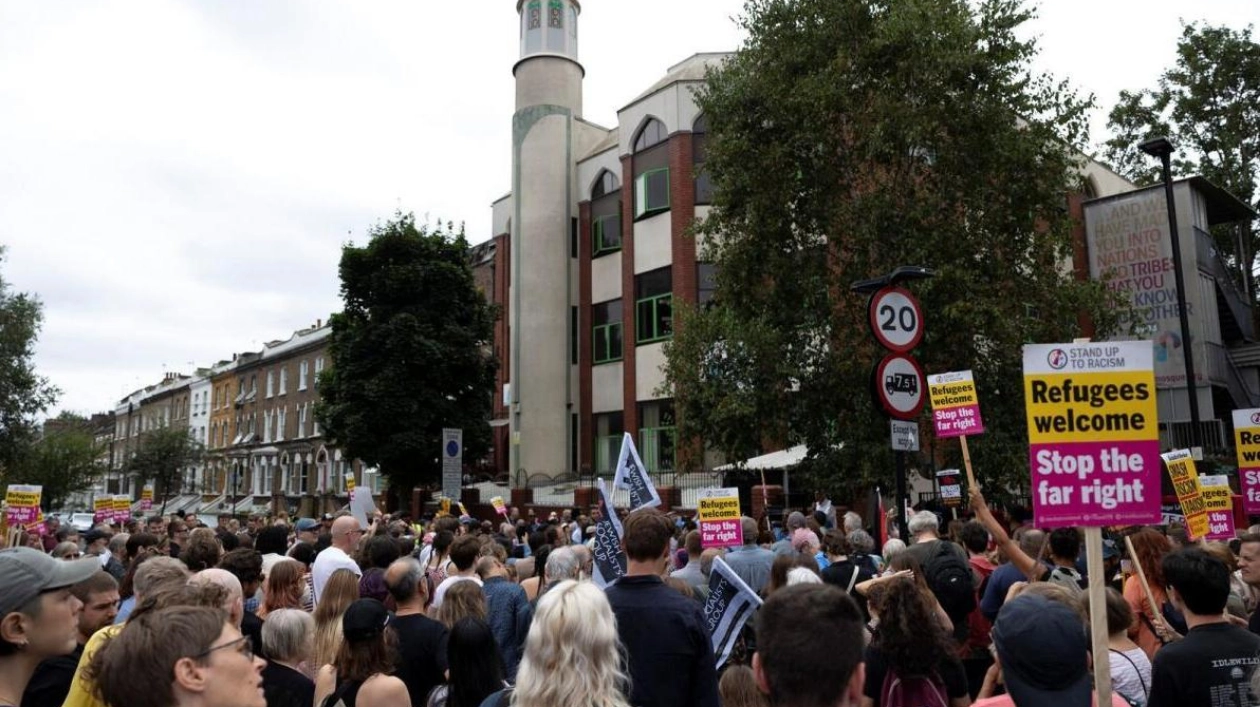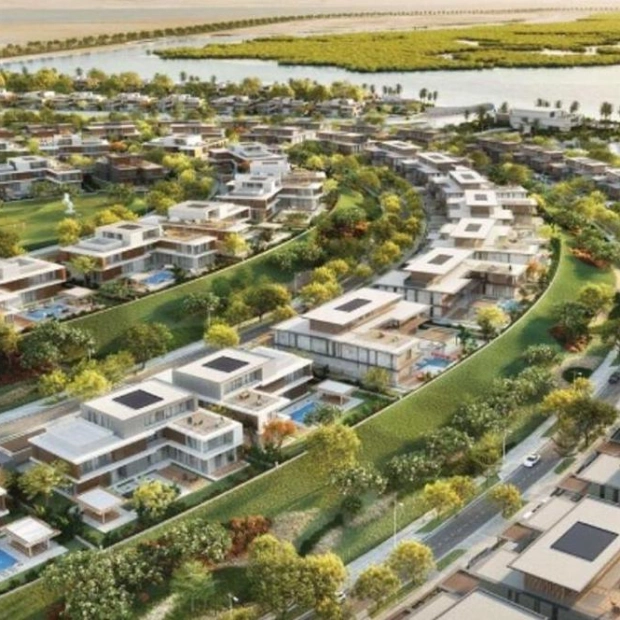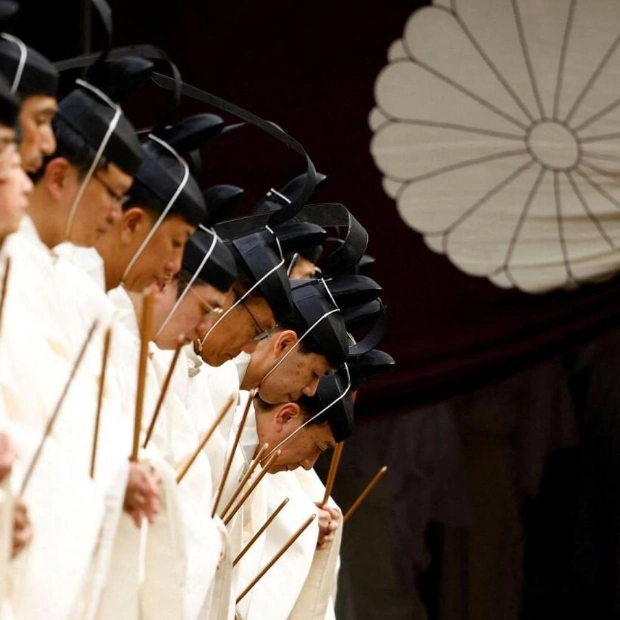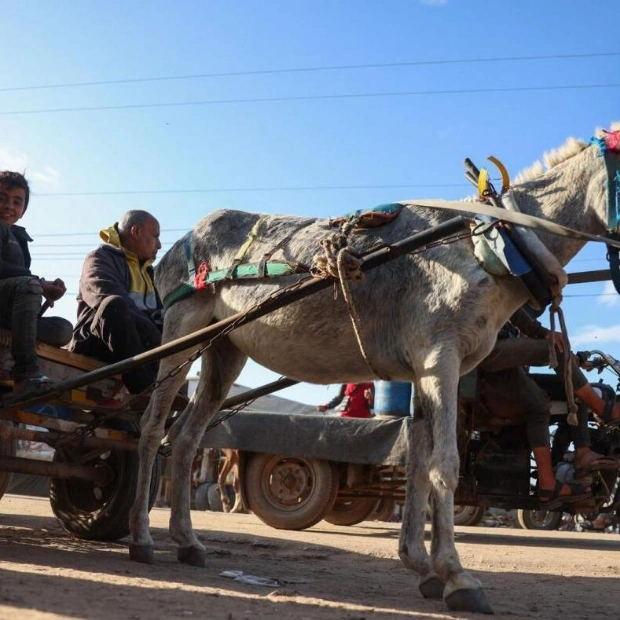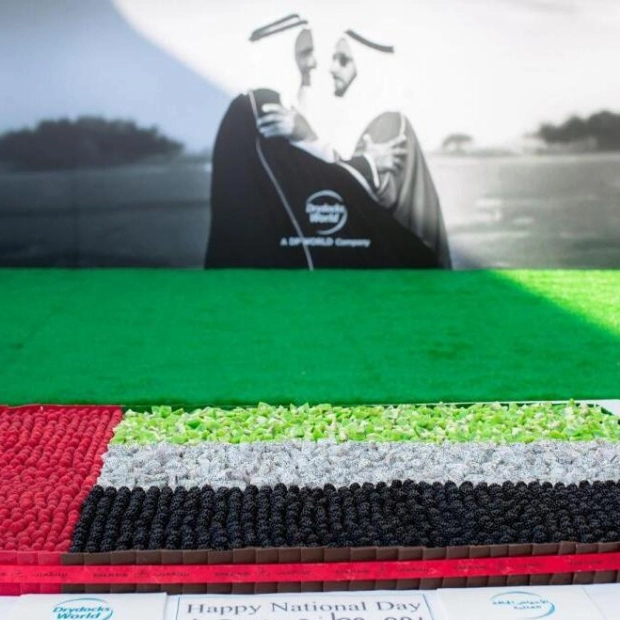Thousands of anti-racism protesters gathered across the UK on Saturday to voice their opposition to recent far-right-triggered riots, particularly in response to the Southport knife attack that claimed the lives of three children. Demonstrations took place in major cities including London, Glasgow, Belfast, Manchester, and various other English towns and cities, with no violent clashes with anti-immigration groups occurring. This peaceful turnout followed a similar pattern on Wednesday night, where expected far-right demonstrations did not occur, and instead, people participated in events organized by the Stand Up To Racism group. Prior to this, over a dozen English towns and cities, along with Belfast, experienced anti-migrant disturbances following the July 29 stabbings, which were incorrectly attributed to a Muslim immigrant on social media. These incidents involved attacks on mosques, hotels associated with immigration, and other public property.
In recent days, most towns and cities in England have seen peaceful nights, leading authorities to believe that the nearly 800 arrests and numerous convictions have deterred further violence. Despite this calm, UK media reported that Prime Minister Keir Starmer has postponed his holiday plans to focus on the ongoing crisis. In Northern Ireland, where disorder has persisted since last weekend, police are investigating a suspected hate crime involving a petrol bomb thrown at a mosque in Newtownards, accompanied by racist graffiti. The Police Service of Northern Ireland (PSNI) confirmed the petrol bomb did not ignite and emphasized that such acts will not be tolerated. There were also reports of property and vehicle damage in Belfast, continuing the nightly unrest.
The disturbances in Northern Ireland, initially triggered by events in England, have been exacerbated by pro-UK loyalist paramilitaries, according to the PSNI. Approximately 5,000 anti-racism protesters gathered in Belfast on Saturday, largely peacefully, demonstrating the city's stance against racism and other forms of discrimination. In London, thousands assembled outside the office of Nigel Farage's Reform UK party before marching through the city center, blaming Farage and other far-right figures for inciting the riots through anti-immigrant rhetoric. Participants emphasized their solidarity with people of color and immigrants, asserting their rejection of the far-right's narrative.
Meanwhile, suspected rioters continued to face court proceedings, with the head of the prosecution service indicating that hundreds of alleged offenders would soon be tried in a new phase of more serious cases. Convictions could result in up to 10 years in prison for the most severe rioting offenses, underscoring the commitment to justice rather than retribution.
